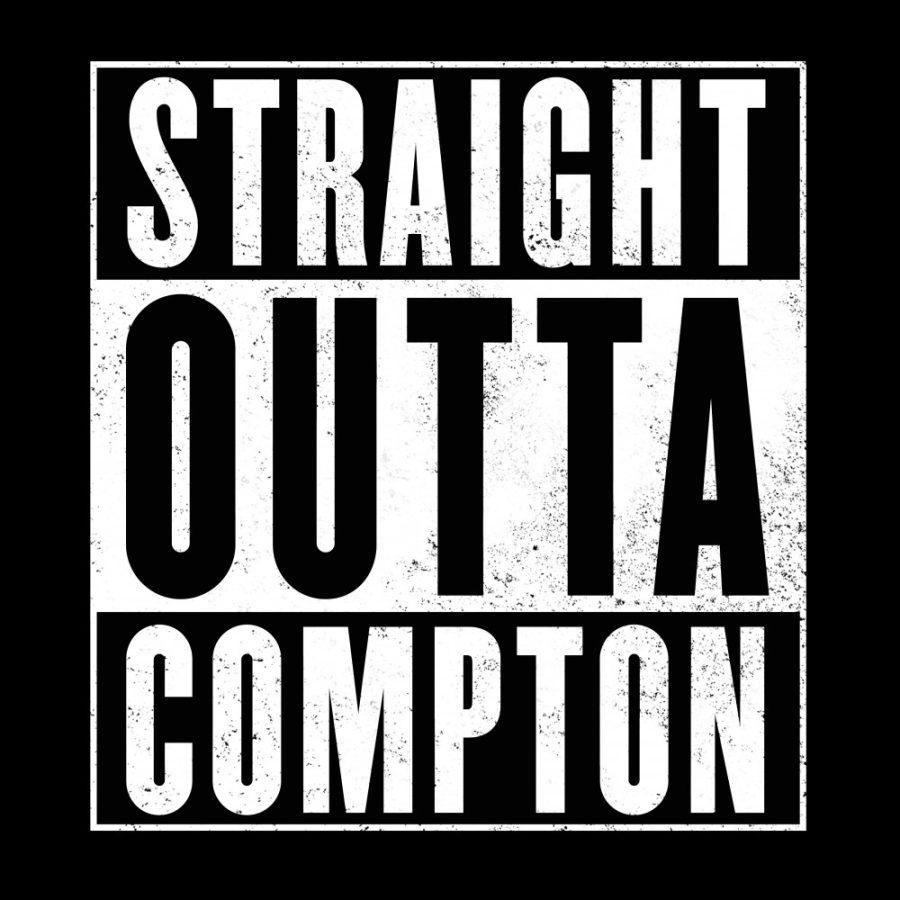‘Gangsta Rap’ is in the eye of the beholder.
The rap group, N.W.A, defined the music sub-genre, “gangsta rap,” for its uncensored look into the inner-city life of gangs, violence and crime. N.W.A., however, staunchly held that their music was “reality rap-” the confrontational lyrics were a representation of their own lives that were just as harsh as the verses of their songs.
“Straight Outta Compton” shows the rise of N.W.A., from the group’s iconic members first meeting to their eventual dissolution. The film uses the rap group’s story as a vehicle to reveal the uncensored and harsh reality of youth in inner-city Los Angeles.
The movie is set in the very streets from which N.W.A. was born. And while the story of the rap group is powerful in its own right, the film gains its true impact through its glimpses depicting 1986 Los Angeles street life, largely through the film’s soundtrack.
The era, characterized by gang conflicts, a crack/cocaine epidemic and brutal police response, is the backdrop for a story filled with huge characters, tragedy, witty lines and a soundtrack to transport audiences back to the 1980s rap scene.
Produced by real life ex-members of N.W.A., Ice Cube and Dr. Dre and directed by F. Gary Gray, the film shows the background of every member of the iconic rap group: Easy-E, Dr. Dre and Ice Cube.
In a powerful opening move, the film shows the charismatic 19-year-old Eazy-E dropping the first lines on the track, letting the audience feel the unadulterated excitement of the characters and the promise of success to come. The film shines at moments like these, when the sheer power of the music of N.W.A. bursts through.
For hip-hop and rap enthusiasts, the soundtrack of “Straight Outta Compton” is perfectly timed and moves along chronologically with the story. The rise and fall of the group is echoed by the evolution of their music. The film transports the audience into a world where they can hear and feel the revolutionary and incantatory power of music that spoke to thousands.
The film packs a whopping 51 songs into its screenplay and each serves to bring the audience closer to the lives of the characters. The film borrows its title from N.W.A’s smash hit “Straight Outta Compton.” The track highlights each rapper of the group individually, opening with Ice Cube’s unforgettable sound. The song is as uncensored as the film—filled with hatred towards police, punchy beats and blaring bass undertone.
The song, recorded in 1988, reflects much of “old school” rap for its lasting influence on rap music. It also shows a different side of the rap group. The opening lyrics to the song read “Straight outta Compton, crazy… named Ice Cube from the gang called N*ggas With Attitudes.” N.W.A. was not only a rap group, it became a pseudo-gang for its members in that it was a way to stand up for themselves on the Compton streets.
The film’s official soundtrack also features Dr. Dre’s “Satisfaction” featuring Snoop Dogg, Marsha Ambrosius and King Mez. The song is especially noteworthy for what it represents in terms of the historical background of the film. After leaving N.W.A., Dr. Dre went on to build his own career in the music industry, eventually mentoring Snoop Dogg.
The track represents the success that the ex-N.W.A member built, as well as showcases a sound that starkly contrasts with the other tracks in the film. This is with good reason: “Satisfaction” is the most modern song in the film. Dr. Dre debuted it on his album Compton, his first album release in 16 years.
Just as N.W.A.’s originals bring the audience to the streets of Los Angeles, Dr. Dre’s new song launches them into modern day and represents the individual success that grew from the iconic rap group. Along with Dr. Dre’s solo hits, there are several solo songs by Eazy-E and Ice Cube, representing the independent talent and personalities of each member of the group.
The film also showcases several artists who thrived in the rap music scene alongside N.W.A., including Run-D.M.C., Zapp, The 2 Live Crew and Parliament. The different artists show a different side to the time period, and highlight important differences in sound and lyrics that set N.W.A. apart from the crowd.
Despite the many artists, the film pays homage to the group by consisting of many of old-school N.W.A. hits such as “Quiet on the Set,” “8 Ball,” “Real N*ggas,” and “No Vaseline.” Throughout the film, it is impossible to forget the group’s unique sound and their musical as well as political impact on their time period.
Compton is far from flawless. However, the killer soundtrack provides an unapologetic look into 1990’s Los Angeles street life and culture, making this film pack a punch that will stay with you long after you leave the theater.
Follow Loir Attias on Twitter.









